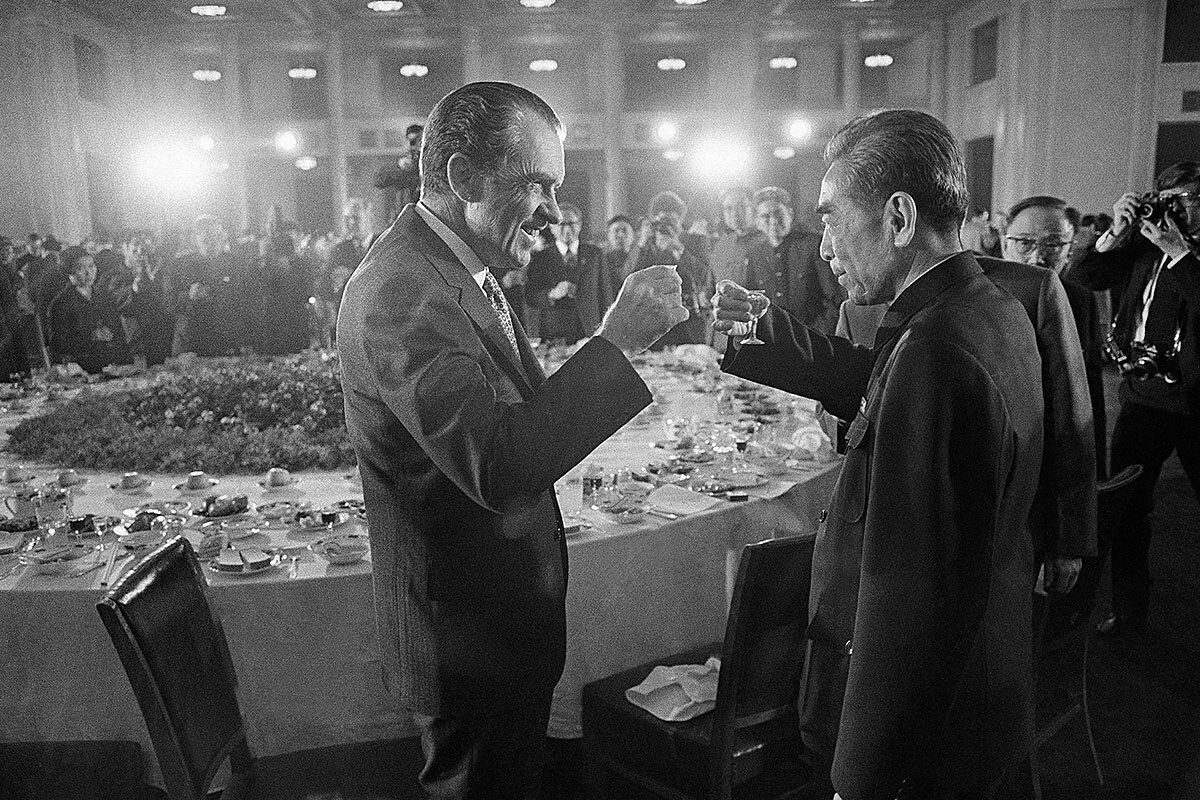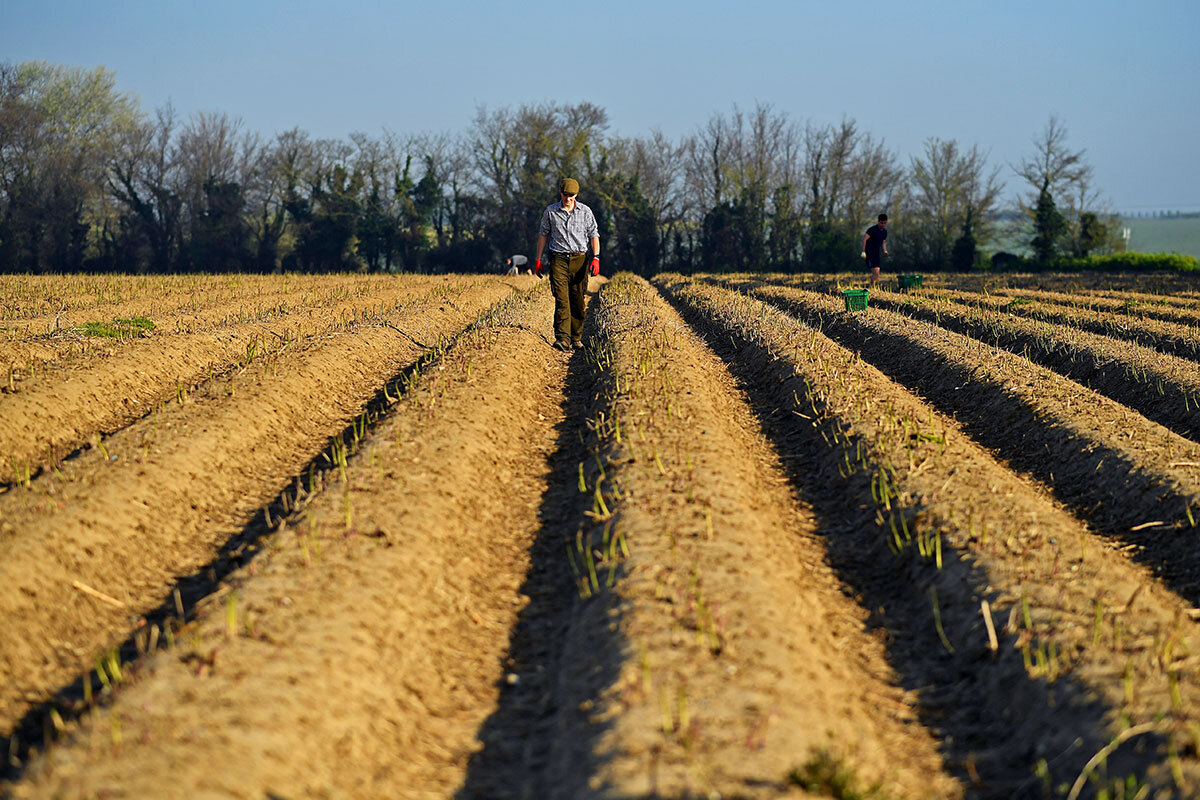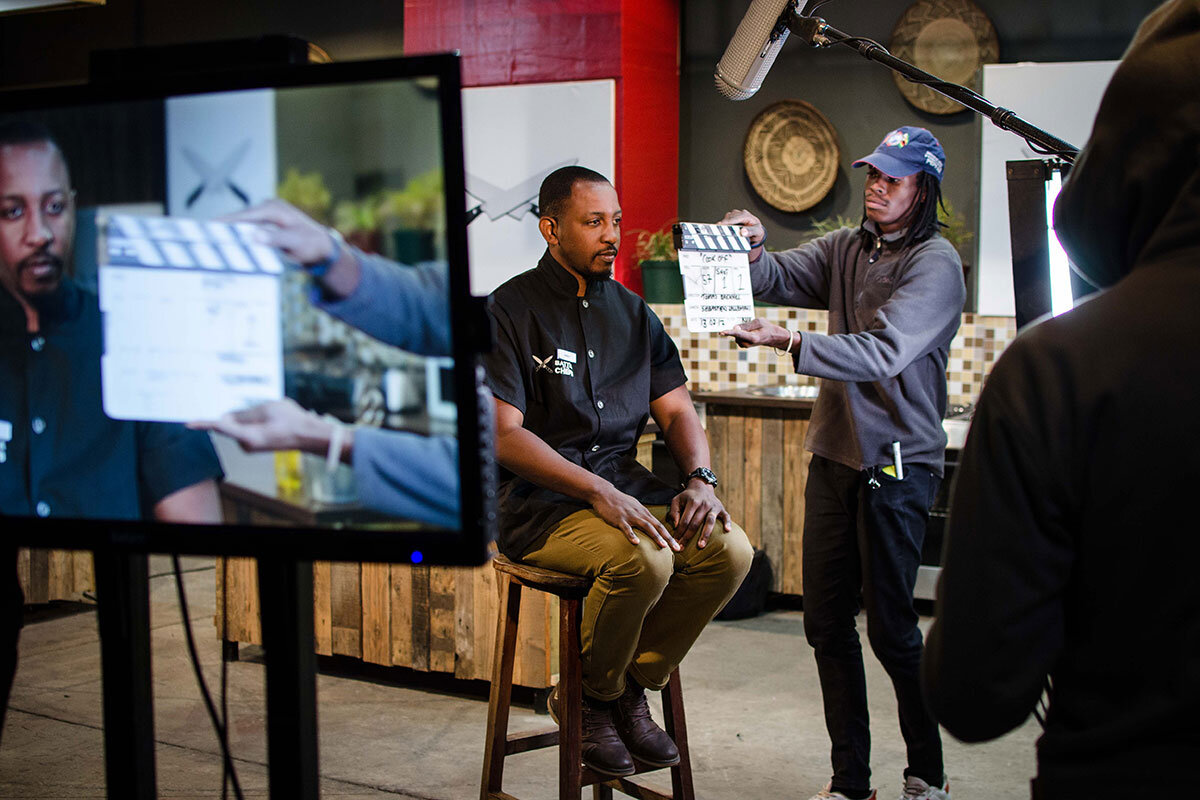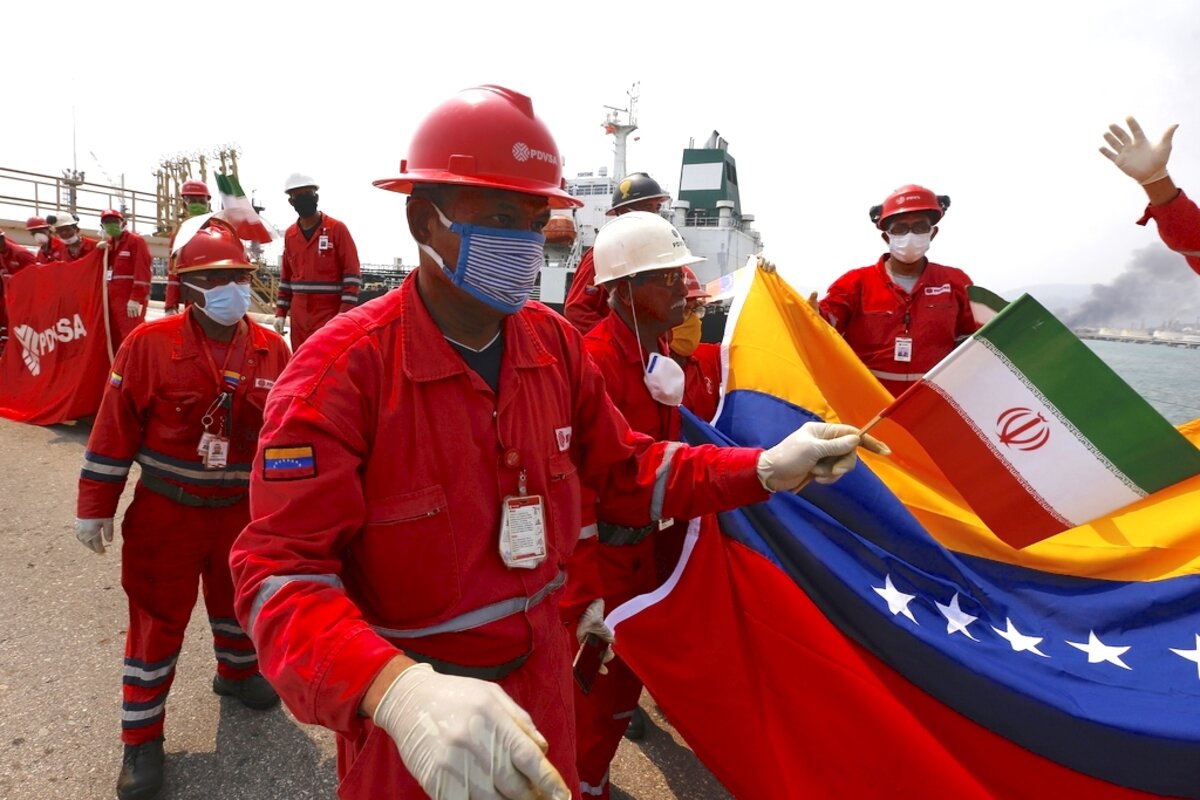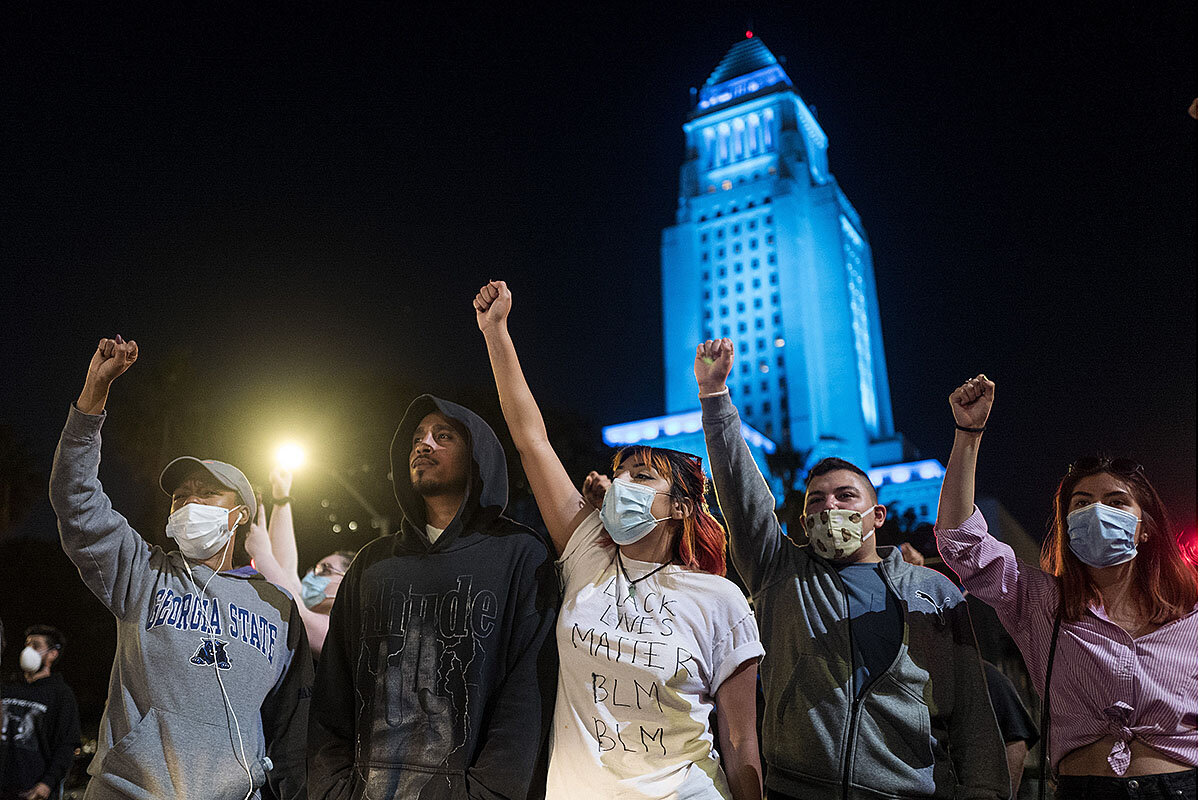In early May, five tanker ships carrying refined petroleum embarked from Iran for Venezuela. Their journey sparked speculation about Iran’s motives and strategic concerns as well as how Washington would respond. In its tenure the Trump administration has imposed ever-tighter sanctions against both Tehran and Caracas to compel regime change.
By violating the sanctions, was Iran attempting to provoke President Donald Trump as he campaigns for reelection? Possibly. Would the U.S. president respond? He had the means in place, having recently deployed U.S. warships off Venezuelan waters to, as he said, “increase surveillance, disruption, and seizures of drug shipments.”
Notably, however, the first of those Iranian ships docked this week without incident, delivering precious fuel to a country that is literally starving after two decades of failed authoritarianism and now the coronavirus pandemic. The tanker loads, enough supply for two months if stretched prudently, may bring temporary relief to Venezuela’s humanitarian crisis. The ships’ safe passage is the latest sign of an unacknowledged, informal détente unfolding between Tehran and Washington that provides an important opening for progress in both Iran and Venezuela.
Tehran backed Washington’s favored candidate for prime minister in Iraq in March and released a captive U.S. naval veteran into the hands of the Swiss Embassy in Tehran. In recent months, attacks against U.S. troops in Afghanistan by Iranian-backed forces have eased off. So have confrontations against ships and tankers in the Persian Gulf.
The Trump administration credits its “maximum pressure” campaign – withdrawal from the 2015 nuclear deal, comprehensive economic sanctions, the January assassination of the elite Qods Force commander Maj. Gen. Qassem Soleimani – for reining in Tehran.
It has applied similar pressure in Venezuela in an attempt to force President Nicolás Maduro from power. Last year the administration recognized opposition leader Juan Guaidó as interim president, prompting roughly 50 other countries to do the same. In addition to a comprehensive oil embargo and a raft of targeted economic sanctions, in March the U.S. Justice Department charged Mr. Maduro and other officials of colluding with Colombian guerrillas to traffic drugs.
Conditions in both countries may be ripe for a shift to American restraint and compassion. On a recent trip to Iran, journalist Dexter Filkins from The New Yorker captured a society weary of decades of repression and sanctions and yearning for change. The supreme leader, Ayatollah Ali Khamenei, is considered to be frail and withdrawn. The regime’s attempt to conceal early cases of COVID-19 resulted in a rapid and devastating outbreak. For the first time since the Islamic Revolution 41 years ago, Tehran appealed to the International Monetary Fund for help. “Public confidence in the theocratic system,” Mr. Filkins wrote, “has collapsed.”
In Venezuela, meanwhile, the combined toll of sanctions and the pandemic “has pushed many Venezuelans eager for change to close ranks with the government and blame the U.S. for their troubles,” according to an assessment by Veteran Intelligence Professionals for Sanity. The group of former U.S. spy practitioners noted that Mr. Guaidó’s support “for ever-tightening sanctions – at a time when his countrymen lack food, water, and most basic supplies – is destroying his credibility.”
The Iranian shipment of fuel to a country so broken it cannot tap its own vast oil reserves reflects defiant measures of self-preservation by two isolated and desperate regimes. That presents an opportunity to cultivate good will. If the purpose of sanctions is to create conditions for a people to effect change from within, the power of sanctions lies in knowing when to exchange them for the softer tools of diplomacy.
 Kim Campbell
Kim Campbell





